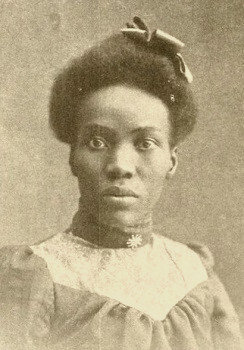De Afro-Amerikaanse dichteres, lerares en voorvechtster van burgerrechten Clara Ann Thompson werd geboren in Rossmoyne, Ohio, op 22 januari 1869. Thompsons ouders, John Henry en Clara Jane Gray Thompson, waren eerder tot slaaf gemaakt in Virginia. Thompsons meest opvallende dichtbundel was “Songs from the Wayside” (1908). Thompsons “A Garland of Poems” (1926) was haar tweede bundel. Sommige van haar gedichten verschenen in “An Anthology of Verse by American Negroes” (1924). Thompson bracht het grootste deel van haar leven door in Rossmoyne, hoewel ze ook buiten haar geboorteplaats les gaf. Ze trouwde niet, maar woonde het grootste deel van haar leven bij twee van haar broers en zussen, Priscilla Jane Thompson en Garland Yancey Thompson. Thompson was actief in de Young Women’s Christian Association (YWCA) en haar plaatselijke kerk, Zion Baptist. Ze was ook lid van de National Association for the Advancement of Colored People (NAACP), en een pleitbezorger voor Afro-Amerikaanse burgerrechten. Thompson werd geïnspireerd door het activisme in deze groep om meer rasgerelateerde poëzie te schrijven, zoals “What Mean This Bleating of the Sheep?”. Dit gedicht werd voorgedragen in de kerken van Cincinnati en Indianapolis, soms staande naast haar broer, Aaron Belford. Thompson maakte kennis met Booker T. Washington en James Whitcomb Riley terwijl hij in Indeanapolis was. Door deze organisatie en ontmoetingen met andere NAACP-leden had de familie Thompson een directe invloed in de Harlem Renaissance en in Washington, D.C. Clara Ann Thompson stierf op 18 maart 1959 als gevolg van een hersenbloeding in haar woonplaats Rossmoyne, Ohio. Thompson is begraven naast haar familie, maar heeft geen bekende graflocatie.
To My Dead Brother
How silently the years have sped away,
Drifting me off from childhood’s sunny time,
Since angels bore thy pure white soul away,
On swift bright wings, to realms of fairer day,
And purer clime.
And still my heart, dear brother, yearns for thee,
When friends seem cold, and life and earth so drear,
Thou wert my hero, ever true to me;
Though other brothers loved I tenderly,
Thou wert most clear.
Ofttimes when death seems cold and grim to me,
I cling to earth, with all its wasting care,
I think: That Messenger once came to thee;
And then I dare to brave eternity,
For thou art there.
And when, at last, the toil of life all o’er,
I stand by Jordan’s surging, swelling, tide,
Methinks our Lord will send thee to the shore,
To guide thy falt’ ring, timid, sister o’er,
To heaven’s side.
An Autumn Day
I sat in the door of our cottage,
One golden autumn day,
And the breezes stirring the tree-tops,
Were as soft as those of May.
But looking away to the woodland,
Through hazy autumn air,
The red and gold of the forest leaves,
Proclaimed the frost-touch there.
The grass was still green in the pasture.
Where soft-eyed cattle trod.
And down in the deep, sheltered valleys.
Were asters and golden rod.
But I knew the merciless frost-king.
Would come with might, erelong.
And blast all the green things remaining,
And still the sweet bird-song.
So my heart drank in the warm beauty,
Of that soft autumn day,
With a wistful love for ev’rything,
So soon to pass away.



